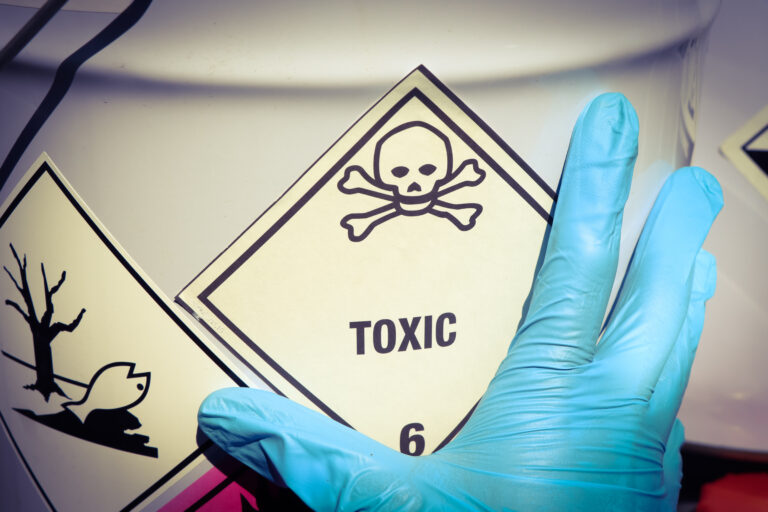
The healthcare industry is a space where highly trained and eminently compassionate individuals collaborate to cure diseases, treat injuries, and promote wellness.
Often, the struggle in healthcare is clear cut. Patients present with symptoms, and healthcare practitioners provide a solution. Sometimes, the adversaries are unseen, as invisible pathogens promote infections that undermine healthcare outcomes for millions of people.
That’s why cleaning and disinfection is so critical to healthcare providers, who deploy rigorous protocols and numerous products to eradicate healthcare-associated infections (HAIs) at the source.
This approach is critical, and every patient deserves the best, most advanced disinfection solutions available. However, disinfection often occurs at the expense of environmental outcomes, as harsh chemicals, excess waste, and persistent pollutants harm the environment.
While combating HAIs is crucial in any healthcare setting, compromising environmental safety in pursuit of advanced disinfection techniques is counterproductive. Fortunately, this doesn’t have to be an either-or proposition.
Hypochlorous acid (HOCl) is a powerful but often overlooked pH-neutral, FDA-approved disinfectant capable of killing bacteria, fungi, and viruses. This naturally occurring disinfectant is non-toxic, gentle on surfaces and has zero bacterial resistance. Bottom line, HOCl is a better, safer and more eco-friendly alternative to traditional disinfectants. Here’s why:
HOCl is Non-Toxic
HOCl outperforms bleach and other potent disinfectants to kill harmful bacteria and viruses in the healthcare setting. According to the British Dental Journal, hypochlorous acid disinfects 200 to 300 times better than bleach and is extremely safe.
By substituting harsh substances such as bleach, aldehydes, and phenols with HOCl, healthcare providers can significantly reduce their use of chemicals that have a negative impact on the environment — as well as people.
Multiple studies reviewed by the World Health Organization found no evidence of toxicity or adverse effects when HOCl was ingested, used as a peritoneal lavage, or inhaled by animals. Meanwhile, the organization determined that the acceptable exposure level for ammonium compounds and bleach is zero, making hypochlorous acid a safer and more effective solution for people and the places they live.
HOCl Minimizes Healthcare’s Chemical Footprint
Chemicals are part of our everyday lives, and they are not necessarily bad for people or the environment. However, healthcare settings often contain copious amounts of hazardous chemicals, which can pose exposure risks to healthcare workers and patients along with environmental risks after disposal.
With more than 100,000 chemical substances used globally, monitoring their efficacy, safety, and environmental impact can be especially challenging. As one study notes, “Many of these chemicals may, especially if not properly used, possess hazards for human health and be toxic to the environment.”
In a study entitled Environmental Issues Caused by High-Dose Disinfection Need Urgent Attention, ACS Publications details how widespread use of disinfectants during the COVID-19 pandemic:
- Caused large amounts of residual disinfectants to enter sewage treatment plants and drinking water sources
- Generated highly toxic disinfection byproducts that threatened ecosystems and human health
- Accelerated the spread of superbugs and antibiotic resistance
- Destroyed the operational stability and treatment efficiency of biological sewage treatment process
In contrast to harmful chemicals, HOCl degrades into salt and water, harmless compounds to both people and the environment.
HOCl is Biodegradable
Hypochlorous acid is completely biodegradable, unlike many chemical disinfectants that persist in the environment and pose long-term ecological risk. Naturally occurring, pH neutral HOCl is similar in composition to milk or human tears. In fact, it’s naturally produced by white blood cells, and plays an important role in the human immune system.
After being effectively used as a disinfectant, HOCl breaks down into simple, non-toxic, naturally occurring substances that don’t accumulate in the environment. This allows healthcare providers to maintain rigorous disinfection standards without the risk of contributing to long-term pollution, making it an ideal choice for facilities committed to environmental stewardship.
HOCl Reduces Waste
In an attempt to ensure effective surface disinfection in healthcare settings, many providers have turned to disposable wipes, believing these throw-away products are best positioned to elevate their disinfection strategies.
Not only is this process less effective than many healthcare providers think, but it adds to the five million tons of medical waste produced annually. It also contributes to microfiber contamination, which has uncertain and potentially problematic environmental implications.
Fogging with HOCl reduces dependence on disposable wipes. For instance, Nevoa’s fogging technology provides EVS teams with a flexible disinfection solution that elevates patient safety, killing 99.9999 percent of pathogens in just one minute without creating more medical waste or releasing potentially harmful microplastics into the environment.
Disinfection and Environmental Support Without Compromise
In its best practices guidelines for environmental cleaning and disinfection, the Centers for Disease Control and Prevention (CDC) notes that ideal disinfectant properties are non-toxic, environmentally friendly, and easy to use.
In other words, the standard is effective disinfectants that eliminate pathogens without adversely affecting the environment. HOCl allows healthcare providers to achieve this goal by combining high efficiency with environmentally friendly outcomes.
It’s a win-win-win for providers, patients, and the environment.
Join us in revolutionizing healthcare safety and sustainability. Contact us today to learn how Nevoa’s HOCl-powered fogging technologies can transform your healthcare environment.
